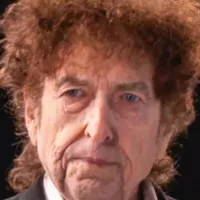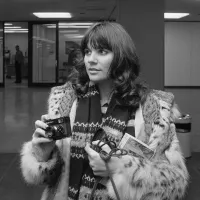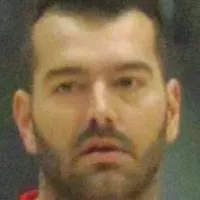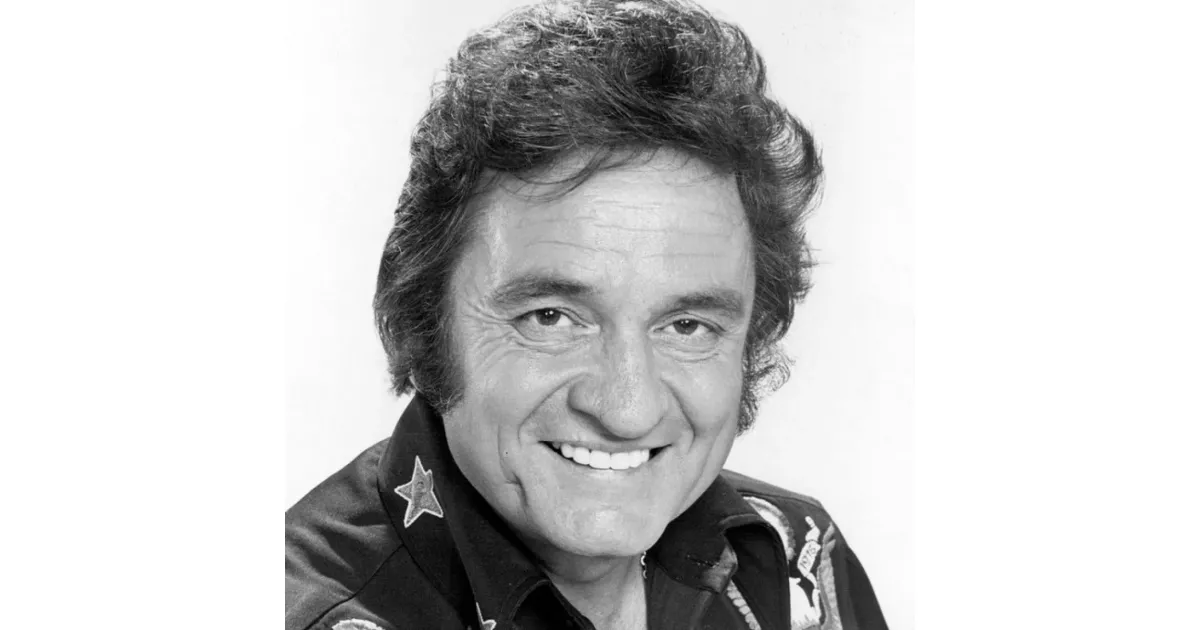Johnny Cash, the "Man in Black," was a highly influential American singer-songwriter renowned for his distinctive bass-baritone voice and the signature train-like sound of his band, the Tennessee Three. His music often explored themes of sorrow, moral struggles, and redemption, particularly in his later work. Known for his rebellious persona juxtaposed with a somber humility, he famously performed free concerts in prisons. Cash's all-black attire became his trademark, solidifying his iconic status in music history.
February 26, 1932: John R. Cash is born
John Ray Cash, also known as J. R. Cash, was born on February 26, 1932. He was an American singer-songwriter known for his songs with themes of sorrow, moral tribulation, and redemption.
March 1935: Cash Family moves to Dyess, Arkansas
In March 1935, when Johnny Cash was three years old, his family settled in Dyess, Arkansas, a New Deal colony established during the Great Depression.
1944: Becoming a Christian
In 1944, Johnny Cash became a Christian at the Central Baptist Church in Dyess, Arkansas, and began singing publicly there.
1944: Death of Jack Cash
In 1944, Johnny Cash's older brother Jack died from injuries sustained in a table saw accident. This event had a profound impact on Cash, who felt guilt over the incident.
July 7, 1950: Cash Enlists in the Air Force
On July 7, 1950, Johnny Cash enlisted in the Air Force shortly after the start of the Korean War. He was stationed at Lackland Air Force Base and Brooks Air Force Base in San Antonio, Texas, and later assigned to Landsberg, West Germany. While in San Antonio, he met Vivian Liberto.
July 18, 1951: Meeting Vivian Liberto
On July 18, 1951, Johnny Cash met Vivian Liberto at a roller skating rink in San Antonio, Texas, while in Air Force basic training.
August 7, 1954: Marriage to Vivian Liberto
On August 7, 1954, Johnny Cash married Vivian Liberto at St. Ann's Roman Catholic Church in San Antonio, one month after his discharge from the Air Force.
1954: Cash Moves to Memphis and Auditions for Sun Records
In 1954, Johnny Cash and his first wife Vivian moved to Memphis, Tennessee. Cash worked as an appliance salesman while studying to be a radio announcer, and he auditioned for Sam Phillips at Sun Records, initially focusing on gospel songs.
1955: Cash Makes First Recordings at Sun Records
In 1955, Johnny Cash made his first recordings at Sun Records with "Hey Porter" and "Cry! Cry! Cry!", which were released in late June and became successful on the country hit parade.
1955: Cash Signs with Sun Records
In 1955, Johnny Cash signed with Sun Records and began using the name "Johnny Cash".
December 4, 1956: Million Dollar Quartet Jam Session
On December 4, 1956, Elvis Presley, Carl Perkins, Jerry Lee Lewis, and Johnny Cash had an impromptu jam session at Sun Records, later released as the "Million Dollar Quartet". Cash mentioned in his autobiography that he sang in a higher pitch to blend in with Elvis since he was farthest from the microphone.
July 1957: Cash Records "Home of the Blues" and Releases First Album
In July 1957, Johnny Cash recorded "Home of the Blues". That same year, Cash became the first Sun artist to release a long-playing album. He felt constrained by his contract due to low royalties and Phillips' focus on Jerry Lee Lewis.
January 1, 1958: First Notable Prison Concert
On January 1, 1958, Johnny Cash played his first notable prison concert at San Quentin State Prison in California.
1958: Cash Signs with Columbia Records
In 1958, Johnny Cash left Sun Records to sign a lucrative deal with Columbia Records. His single "Don't Take Your Guns to Town" became one of his biggest hits. He also recorded a collection of gospel songs for his second album for Columbia.
1960: Sun Records Release of "Oh Lonesome Me" Cover
In 1960, Sun Records released Johnny Cash's cover of "Oh Lonesome Me", which reached number 13 on the C&W charts, despite Cash having already moved to Columbia Records.
1961: Move to Casitas Springs, California
In 1961, Johnny Cash moved his family to a hilltop home in Casitas Springs, California, where his parents also ran a trailer park.
1961: Cash Appears in 'Five Minutes to Live'
In the 1961, Johnny Cash appeared in, and wrote and sang the opening theme for, a film entitled "Five Minutes to Live", which was later re-released as "Door-to-door Maniac".
1962: Cash and First Wife Separate
In 1962, Johnny Cash and his first wife Vivian separated, reaching a low point due to his severe drug addiction and destructive behavior.
1963: Release of 'Ring of Fire: The Best of Johnny Cash'
In 1963, Johnny Cash released 'Ring of Fire: The Best of Johnny Cash', the promotional picture of which was later featured on a Forever stamp.
August 22, 1964: Advertisement in Billboard Regarding Ira Hayes Song
On August 22, 1964, Johnny Cash posted a letter as an advertisement in Billboard magazine, defending his song "Ira Hayes" and criticizing the record industry's fear of controversial topics.
1964: Sun Records Continues Releasing Cash's Music
By 1964, Sun Records continued to release new singles and albums featuring previously unreleased material by Johnny Cash, creating the unusual situation of Cash having new releases out on two labels concurrently.
1964: Recording of Bitter Tears: Ballads of the American Indian
In 1964, Johnny Cash recorded the album "Bitter Tears: Ballads of the American Indian".
1964: Release of 'Bitter Tears' Album
In 1964, Johnny Cash released his concept album "Bitter Tears", which addressed the plight of Native Americans. It met with resistance from some fans and radio stations due to its controversial themes.
1964: Influence on Bob Dylan's Career
In 1964, Johnny Cash's letter to Broadside influenced Bob Dylan's shift in musical direction, advocating for artists to be heard without interruption.
May 11, 1965: Cash Arrested in Starkville, Mississippi
On May 11, 1965, Johnny Cash was arrested in Starkville, Mississippi, for trespassing to pick flowers. He later used this incident as inspiration for his song "Starkville City Jail".
June 1965: Cash's Camper Sets Off Forest Fire
In June 1965, Johnny Cash's camper caught fire during a fishing trip, starting a forest fire in Los Padres National Forest, California, that burned several hundred acres. The cause was disputed, with Cash blaming a defective exhaust system and others attributing it to a campfire gone awry while he was under the influence of drugs.
1965: Appearance on Rainbow Quest
In 1965, Johnny Cash and June Carter appeared on Pete Seeger's TV show, Rainbow Quest, where Cash discussed his activism for Native Americans.
1965: Release of 'Sings the Ballads of the True West'
In 1965, Johnny Cash released "Sings the Ballads of the True West", an experimental double record featuring frontier songs and his spoken narration.
1965: Influence on Bob Dylan
In 1965, Johnny Cash significantly influenced Bob Dylan's decision to transition to using an electric guitar, notably demonstrated at Dylan's performance at the Newport Folk Festival.
1966: Adoption by Seneca Nation's Turtle Clan
In 1966, Johnny Cash was adopted by the Seneca Nation's Turtle Clan in recognition of his activism.
1966: Divorce from Vivian Liberto
In 1966, Vivian Liberto filed for divorce from Johnny Cash due to his substance abuse, touring, adultery, and close relationship with June Carter.
1967: Cash Arrested in Walker County, Georgia
In 1967, Johnny Cash was arrested in Walker County, Georgia, after police found him carrying prescription pills after a car accident. Sheriff Ralph Jones' warning helped him turn his life around. He later played a benefit concert in LaFayette, raising $75,000 for the high school.
1967: Cash and June Carter Win Grammy for "Jackson"
In 1967, Johnny Cash's duet with June Carter, "Jackson", won a Grammy Award.
February 22, 1968: Cash Proposes to June Carter
On February 22, 1968, Johnny Cash proposed to June Carter onstage at a concert in London, Ontario, Canada.
March 1, 1968: Marriage to June Carter
On March 1, 1968, Johnny Cash married June Carter in Franklin, Kentucky, after proposing during a live performance in London, Ontario.
1968: Benefit at Rosebud Reservation
In 1968, Johnny Cash performed a benefit at the Rosebud Reservation to raise money to help build a school.
1968: Cash Rediscovered Christian Faith and Sought Help for Addiction
In 1968, Johnny Cash rediscovered his Christian faith and took an "altar call" in Evangel Temple. While he was trying to get sober, June, Maybelle, and Ezra Carter moved into Cash's mansion for a month to help him get off drugs.
1968: Release of 'At Folsom Prison'
In 1968, Johnny Cash's live album "At Folsom Prison" was released, later recognized by Rolling Stone as one of the 500 greatest albums of all time.
1968: Release of Johnny Cash at Folsom Prison Album
In 1968, the live recording of Johnny Cash's performance at Folsom Prison was released as the album "Johnny Cash at Folsom Prison", which became a highly successful album.
June 1969: Start of The Johnny Cash Show
In June 1969, Johnny Cash began starring in his own television show, "The Johnny Cash Show", on the ABC network.
1969: Concerts at New Mexico State Fair
From September 15-18, 1969, Johnny Cash performed a series of four concerts at the New Mexico State Fair to promote the first season of The Johnny Cash Show.
1969: Release of Johnny Cash at San Quentin Album and International Hit Status
In 1969, the live album "Johnny Cash at San Quentin" was released, reaching the top of the Billboard charts and becoming an international hit. In 1969, Cash sold 6.5 million albums, outselling even The Beatles.
March 3, 1970: Birth of John Carter Cash
On March 3, 1970, Johnny Cash and June Carter Cash had their only child together, John Carter Cash.
1970: Performance at the White House
In 1970, Johnny Cash performed at the White House, declining Richard Nixon's request to play certain songs and instead choosing to play "The Ballad of Ira Hayes", "What Is Truth", and "Man in Black".
1970: Recording of Cherokee Removal Essay
In 1970, Johnny Cash recorded a reading of John G. Burnett's 1890 essay on Cherokee removal for the Historical Landmarks Association in Nashville.
March 1971: End of The Johnny Cash Show
In March 1971, The Johnny Cash Show, on the ABC network, ended.
May 9, 1971: Answering the Altar Call
On May 9, 1971, Johnny Cash answered the altar call at Evangel Temple in Nashville, an Assemblies of God congregation.
1971: Release of "Man in Black"
In 1971, Johnny Cash's song "Man in Black" codified an image that the singer had assumed naturally for more than fifteen years, portraying him as a blue-collar prophet who spoke truth to power.
1971: Golden Globe Nomination
In 1971, the title song, "The Ballad of Little Fauss and Big Halsy", written by Carl Perkins for the film "Little Fauss and Big Halsy" and performed by Johnny Cash, was nominated for a Golden Globe award.
1972: Performance at Österåker Prison in Sweden
In 1972, Johnny Cash performed at the Österåker Prison in Sweden.
1973: Release of Gospel Road: A Story of Jesus Film
In 1973, Johnny Cash co-wrote and narrated the film about the life of Jesus, "Gospel Road: A Story of Jesus", which was then released.
1973: Release of På Österåker Album
In 1973, the live album "På Österåker (At Österåker)" was released.
November 22, 1974: Riding The Rails TV Special
On November 22, 1974, CBS aired Johnny Cash's one-hour TV special entitled "Riding The Rails", a musical history of trains.
March 17, 1975: Special Concert at Naval War College
On March 17, 1975, Johnny Cash, along with The Tennessee Three, June Carter Cash, and Carl Lee Perkins, performed a special concert for a military audience at the Naval War College in Rhode Island.
1975: Autobiography 'Man in Black'
In 1975, Johnny Cash's autobiography, "Man in Black," was released, offering insights into his life and career.
1975: Publication of Man in Black Autobiography
In 1975, Johnny Cash's first autobiography, "Man in Black", was published.
1976: Commercials for Lionel Trains
In 1976, Johnny Cash made commercials for Lionel Trains, for which he also wrote the music.
1976: Concert at Tennessee State Prison Videotaped
In 1976, Johnny Cash's concert at Tennessee State Prison was videotaped for TV broadcast.
1977: Cash Relapses into Amphetamine Use
In 1977, Johnny Cash began using amphetamines again.
1977: Induction into Nashville Songwriters Hall of Fame
In 1977, Johnny Cash was inducted into the Nashville Songwriters Hall of Fame.
November 1978: Pilgrimage to Israel
In November 1978, Johnny Cash and his wife June completed a Bible course, culminating in a pilgrimage to Israel.
1979: Recording of Gospel Double-LP
In 1979, Johnny Cash recorded "A Believer Sings the Truth", a gospel double-LP that was released on an independent label despite Cash's contract with Columbia.
1980: Beginning of JC Unit One tour bus usage
In 1980 Johnny Cash began using JC Unit One as his private tour bus until 2003.
1980: Induction into Country Music Hall of Fame
In 1980, Johnny Cash became the Country Music Hall of Fame's youngest living inductee at age 48.
1981: Recording Sessions with Billy Sherrill
Between 1981 and 1984, Johnny Cash recorded several sessions with Billy Sherrill, which were shelved and later released in 2014.
1981: Starring Role in The Pride of Jesse Hallam
In 1981, Johnny Cash starred in "The Pride of Jesse Hallam", a television film that addressed adult illiteracy.
1983: Cash Enters Rehab at the Betty Ford Clinic
By 1983, Johnny Cash was deeply addicted again and entered rehab at the Betty Ford Clinic for treatment.
1983: Appearance in Murder in Coweta County
In 1983, Johnny Cash appeared as a heroic sheriff in "Murder in Coweta County", a film based on a real-life murder case.
1983: Relapse into Addiction After Abdominal Injury
In 1983, Johnny Cash relapsed into addiction after being administered painkillers for a serious abdominal injury caused by an incident in which he was kicked and wounded by an ostrich on his farm.
1984: Leaving Columbia Records
After more unsuccessful recordings were released between 1984 and 1985, Johnny Cash left Columbia Records.
1984: Recording Sessions with Billy Sherrill
Between 1981 and 1984, Johnny Cash recorded several sessions with Billy Sherrill, which were shelved and later released in 2014.
1984: Release of "The Chicken in Black"
In 1984, Johnny Cash released a self-parody recording titled "The Chicken in Black".
1985: Leaving Columbia Records
After more unsuccessful recordings were released between 1984 and 1985, Johnny Cash left Columbia Records.
1985: Appearance in North and South Miniseries
In 1985, Johnny Cash gave a performance as abolitionist John Brown in the American Civil War television miniseries "North and South".
1985: Release of Highwayman Album with The Highwaymen
In 1985, Johnny Cash, along with Waylon Jennings, Willie Nelson, and Kris Kristofferson as the Highwaymen, released their album "Highwayman".
1986: Performance at Billy Graham Crusade
In 1986, Johnny Cash and June performed at a Billy Graham Crusade in Tallahassee, singing "One of These Days I'm Gonna Sit Down and Talk to Paul".
1986: Publication of 'Man in White'
In 1986, Johnny Cash penned a Christian novel titled "Man in White", reflecting his religious beliefs and identity.
1986: Recording of Class of '55 Album
In 1986, Johnny Cash returned to Sun Studios in Memphis to team up with Roy Orbison, Jerry Lee Lewis, and Carl Perkins to create the album "Class of '55".
1987: Signing with Mercury Records
In 1987, after being dropped by Columbia Records, Johnny Cash signed with Mercury Records, marking the beginning of a short and unsuccessful stint with the label.
1988: 'Til Things Are Brighter' Tribute Album
In 1988, British musicians Marc Riley and Jon Langford created 'Til Things Are Brighter, a tribute album featuring interpretations of Johnny Cash's songs by British indie-rock artists. Cash expressed enthusiasm for the project.
1988: Double Bypass Surgery
In 1988, Johnny Cash underwent double bypass surgery after Waylon Jennings suggested that Cash get his heart condition checked out.
1989: Cash Enters Cumberland Heights Treatment Center
In 1989, Johnny Cash entered Nashville's Cumberland Heights Alcohol and Drug Treatment Center.
1989: Commitment to Salvation at Arkansas Performance
In 1989, Johnny Cash spoke about his commitment to the salvation of drug dealers and alcoholics at a performance in Arkansas, and sang "Family Bible".
1990: Recording of Johnny Cash Reads The Complete New Testament
In 1990, Johnny Cash recorded "Johnny Cash Reads The Complete New Testament".
1990: Release of Highwaymen 2 Album
In 1990, the Highwaymen (Johnny Cash, Waylon Jennings, Willie Nelson, and Kris Kristofferson) released their album "Highwaymen 2".
1991: Collaboration with One Bad Pig
In 1991, Johnny Cash sang a version of "Man in Black" for the Christian punk band One Bad Pig's album I Scream Sunday.
1991: End of Mercury Records Contract
In 1991, Johnny Cash's contract with Mercury Records ended, concluding a period that was marked by limited success for the artist.
1992: Cash Enters Loma Linda Behavioral Medicine Center for Final Rehab
In 1992, Johnny Cash started care at the Loma Linda Behavioral Medicine Center in Loma Linda, California, for his final rehabilitation treatment. His son followed him into the facility several months later.
1992: Induction into Rock and Roll Hall of Fame
In 1992, Johnny Cash was inducted into the Rock and Roll Hall of Fame.
1993: Collaboration with U2
In 1993, Johnny Cash collaborated with U2, singing "The Wanderer" on their album Zooropa. Bono wrote the song for Cash.
1993: Recording of 'Songwriter' Demos
In 1993, Johnny Cash recorded demos that would later be released in the compilation album 'Songwriter' in 2024. These demos featured guest artists including Vince Gill and the Black Keys.
1994: Signing with American Recordings and Release of 'American Recordings'
In 1994, Johnny Cash signed with Rick Rubin's American Recordings label and released the album American Recordings, recorded in his living room with only his Martin Dreadnought guitar. The album won a Grammy.
1994: Release of 'American Recordings'
In 1994, Johnny Cash's studio album "American Recordings" was released, later recognized by Rolling Stone as one of the 500 greatest albums of all time.
1995: Release of Highwaymen – The Road Goes On Forever Album
In 1995, The Highwaymen (Johnny Cash, Waylon Jennings, Willie Nelson, and Kris Kristofferson) released their album "Highwaymen – The Road Goes On Forever".
January 1996: Collaboration on 'Twisted Willie' Tribute Album
In January 1996, Johnny Cash collaborated with Kim Thayil, Krist Novoselic, and Sean Kinney to cover Willie Nelson's "Time of the Preacher" for the tribute album Twisted Willie.
1996: Collaboration on 'Unchained'
In 1996, Johnny Cash collaborated with Tom Petty and the Heartbreakers on the album Unchained, also known as American Recordings II. Rick Rubin produced the album.
1996: Crow Records 'Redemption Day'
In 1996, Sheryl Crow originally wrote and recorded the song "Redemption Day", which Johnny Cash later recorded for his "American VI: Ain't No Grave" album and Crow would later add new vocals to for her album Threads in 2019.
October 25, 1997: Collapse on Stage and Parkinson's Announcement
On October 25, 1997, Johnny Cash nearly collapsed on stage in Flint, Michigan, and subsequently announced to his audience that he had Parkinson's disease, which was later discovered to be a misdiagnosis.
1997: Publication of 'Cash: The Autobiography'
In 1997, Johnny Cash wrote Cash: The Autobiography, believing he had not explained enough of himself in his previous autobiography, Man in Black.
1997: Cash Reflects on Drug Use
In a 1997 interview, Johnny Cash reflected on his past drug use, noting that the pills eventually started taking him.
1998: Hospitalization with Pneumonia
In 1998, Johnny Cash was hospitalized with severe pneumonia, resulting in damage to his lungs and further impacting his health.
1998: Grammy for 'Unchained'
In 1998, the album Unchained, a collaboration between Johnny Cash and Tom Petty and the Heartbreakers, won the Best Country Album Grammy.
1999: Grammy Lifetime Achievement Award
In 1999, Johnny Cash received the Grammy Lifetime Achievement Award.
1999: All-Star Tribute Concert on TNT
In 1999, a diverse group of artists paid tribute to Johnny Cash at an all-star concert which aired on TNT. Cash performed for the first time in over a year. Cash also influenced Dylan's shift to electric guitar.
1999: Cash Portrayed in 'I Still Miss Someone'
In 1999, country singer Mark Collie portrayed Johnny Cash in John Lloyd Miller's award-winning short film I Still Miss Someone.
2000: Release of 'American III: Solitary Man'
In 000, Johnny Cash released the album American III: Solitary Man, part of his later career resurgence with American Recordings.
2001: Awarded National Medal of Arts
In 2001, Johnny Cash was awarded the National Medal of Arts.
2002: Release of 'American IV: The Man Comes Around'
In 2002, Johnny Cash released the album American IV: The Man Comes Around, which featured covers of songs by rock artists such as Nine Inch Nails and Depeche Mode. The album included the song "Hurt".
2002: Cash Denies Phillips' Comment
In a 2002 interview, Johnny Cash denied that Sam Phillips told him to "go home and sin, then come back with a song I can sell".
May 15, 2003: Death of June Carter Cash
On May 15, 2003, June Carter Cash passed away at the age of 73, impacting Johnny Cash deeply. June encouraged him to continue working until her death.
May 2003: Death of June Carter Cash
In May 2003, June Carter Cash passed away, deeply affecting Johnny Cash. He continued to work, completing 60 songs in his final months.
August 21, 2003: Final Recording Session
On August 21, 2003, Johnny Cash made his final recordings, including "Like the 309" and "Engine 143", shortly before his death.
September 12, 2003: Death of Johnny Cash
Johnny Cash died on September 12, 2003. He was an American singer-songwriter, known as the "Man in Black."
2003: End of JC Unit One tour bus usage
In 2003 Johnny Cash ended using JC Unit One as his private tour bus which he had been using since 1980.
2003: "Hurt" Nominated for Six VMAs
In 2003, Johnny Cash's song "Hurt" was nominated for six VMAs at the MTV Video Music Awards, winning only Best Cinematography. He was the oldest artist ever nominated for an MTV Video Music Award.
2003: Rolling Stone's Recognition of Dual Hall of Fame Inductions
Marking his death in 2003, Rolling Stone stated Johnny Cash was the only artist other than Elvis Presley inducted as a performer into both the Country Music Hall of Fame and the Rock and Roll Hall of Fame.
2004: Ranking on Rolling Stone's List
In 2004, Rolling Stone ranked Johnny Cash number 31 on their "100 Greatest Artists of All Time" list.
November 2005: Release of 'Walk the Line'
In November 2005, Walk the Line, a biographical film about Johnny Cash's life, was released in the United States to commercial success and critical acclaim. Joaquin Phoenix portrayed Johnny Cash, and Reese Witherspoon portrayed June Carter Cash.
January 2006: Sale of Lakeside Home
In January 2006, Johnny Cash's lakeside home on Caudill Drive in Hendersonville was sold to Bee Gees vocalist Barry Gibb and his wife Linda for $2.3 million.
March 12, 2006: Broadway Debut of 'Ring of Fire'
On March 12, 2006, Ring of Fire, a jukebox musical of Johnny Cash's oeuvre, debuted on Broadway at the Ethel Barrymore Theater but closed on April 30 due to harsh reviews and disappointing sales.
July 4, 2006: Posthumous Release of 'American V: A Hundred Highways'
On July 4, 2006, American V: A Hundred Highways, a collaboration between Johnny Cash and producer Rick Rubin, was released posthumously.
July 22, 2006: 'American V' Debuts at Number One
On July 22, 2006, the posthumously released album "American V: A Hundred Highways" by Johnny Cash debuted at number one on the Billboard Top 200 album chart.
2006: Sale of House of Cash
In 2006, the Johnny Cash Museum, located in one of Cash's properties in Hendersonville and dubbed the House of Cash, was sold based on Cash's will.
2006: Release of 'American V: A Hundred Highways'
In 2006, the album American V: A Hundred Highways was released, featuring some of Johnny Cash's final recordings, including "Like the 309".
April 10, 2007: Fire Destroys Cash's Former Home
On April 10, 2007, a fire erupted at Johnny Cash's former lakeside home in Hendersonville during renovation work for the new owner, Barry Gibb. The fire spread quickly due to flammable wood preservative, resulting in the complete destruction of the building.
2007: Johnny Cash Flower Pickin' Festival
From November 2–4, 2007, the Johnny Cash Flower Pickin' Festival was held in Starkville, Mississippi, honoring Cash's life and music. It included a symbolic posthumous pardon for his 1965 arrest and was intended to become an annual event.
2007: JC Unit One on Exhibit
In 2007, JC Unit One, Johnny Cash's private tour bus, was put on exhibit at the Rock and Roll Hall of Fame and Museum in Cleveland, Ohio. Public tours of the bus are offered seasonally.
2007: Vivian Liberto's Book on "Ring of Fire" Origins
In 2007, Johnny Cash's first wife Vivian Liberto published her book, "I Walked the Line: My Life with Johnny", claiming Cash gave Carter half the songwriting credit for "Ring of Fire" for monetary reasons.
February 23, 2010: Release of 'American VI: Ain't No Grave'
On February 23, 2010, three days before what would have been Johnny Cash's 78th birthday, his second posthumous record, titled American VI: Ain't No Grave, was released by the Cash Family, Rick Rubin, and Lost Highway Records.
April 11, 2010: Broadway Debut of 'Million Dollar Quartet'
On April 11, 2010, Million Dollar Quartet, a musical portraying the early Sun recording sessions involving Johnny Cash, Elvis Presley, Jerry Lee Lewis, and Carl Perkins, debuted on Broadway. Actor Lance Guest portrayed Cash.
2010: Induction into GMA's Gospel Music Hall of Fame
In 2010, Johnny Cash was inducted into GMA's Gospel Music Hall of Fame.
2010: Ranking on Rolling Stone's List of Greatest Singers
In 2010, Rolling Stone ranked Johnny Cash number 21 on their "100 Greatest Singers" list.
2010: Auction of Nudie Cohn Shirt
In 2010, the Nudie Cohn shirt that Johnny Cash wore as the grand marshal of the United States Bicentennial parade was sold for $25,000 in an auction.
2011: Book Published About 'Bitter Tears' and Re-recording of Songs
In 2011, a book was published about Johnny Cash's album "Bitter Tears", leading to contemporary artists re-recording the songs and a documentary film about Cash's efforts with the album.
2012: Inclusion in Rolling Stone's 500 Greatest Albums
In 2012, Rolling Stone ranked Johnny Cash's 1968 live album At Folsom Prison and his 1994 studio album American Recordings at No. 88 and No. 366, respectively, in its list of the 500 greatest albums of all time.
April 26, 2013: Opening of New Johnny Cash Museum in Nashville
On April 26, 2013, a new Johnny Cash Museum, founded by Shannon and Bill Miller, opened in downtown Nashville.
June 5, 2013: Release of Forever Stamp Honoring Cash
On June 5, 2013, a limited-edition Forever stamp honoring Johnny Cash went on sale, featuring a promotional picture taken around the 1963 release of Ring of Fire: The Best of Johnny Cash.
2013: Induction into Memphis Music Hall of Fame
In 2013, Johnny Cash was inducted into the Memphis Music Hall of Fame.
2013: Publication of Johnny Cash: The Life
In 2013, Robert Hilburn's biography, "Johnny Cash: The Life", was published.
October 14, 2014: Unveiling of Phase 1 of Johnny Cash Trail
On October 14, 2014, the City of Folsom unveiled phase 1 of the Johnny Cash Trail to the public with a dedication and ribbon-cutting ceremony attended by Rosanne Cash. The trail features public art pieces telling the story of Johnny Cash and his connection to Folsom Prison.
2014: Release of Out Among the Stars Album
In 2014, the shelved recording sessions between 1981 and 1984 with Billy Sherrill were released as the album "Out Among the Stars" by Legacy Recordings.
2015: Posthumous Role in Lego Dimensions
In 2015, Johnny Cash posthumously reprised his role as the "Space Coyote" in the Lego Dimensions video game, utilizing archival audio recordings from The Simpsons episode "El Viaje Misterioso de Nuestro Jomer".
2015: New Tarantula Species Named After Cash
In 2015, a new species of black tarantula was identified near Folsom Prison and named Aphonopelma johnnycashi in honor of Johnny Cash.
November 2016: Documentary Film About 'Bitter Tears' Airs on PBS
In November 2016, a documentary film about Johnny Cash's work with the album "Bitter Tears" was aired on PBS.
2016: "Country Legends Race" at Nashville Sounds Games
In 2016, the Nashville Sounds Minor League Baseball team added the "Country Legends Race" to its between-innings entertainment, featuring caricatures of Cash, George Jones, Reba McEntire, and Dolly Parton.
2016: Publication of Cash's Poems in 'Forever Words'
In 2016, the poems of Johnny Cash were published in book form in 'Forever Words', which were then set to music and released as an album in 2018.
February 8, 2018: Announcement of 'Forever Words' Album
On February 8, 2018, the album Forever Words was announced. It sets music to poems that Johnny Cash had written and which were published in book form in 2016.
May 2, 2018: Boyhood Home Listed in National Register
On May 2, 2018, Johnny Cash's boyhood home in Dyess was listed in the National Register of Historic Places as "Farm No. 266, Johnny Cash Boyhood Home."
June 3, 2018: Arkansas Country Music Awards Lifetime Achievement Award
The Arkansas Country Music Awards honored Johnny Cash's legacy with the Lifetime Achievement award on June 3, 2018. The ceremony was held that same date at the University of Arkansas at Little Rock.
April 2019: Statue of Cash to Be Placed in National Statuary Hall
In April 2019, it was announced that the state of Arkansas would place a statue of Johnny Cash in the National Statuary Hall to represent the modern history of Arkansas.
2019: Sheryl Crow Releases Duet with Cash on 'Redemption Day'
In 2019, Sheryl Crow released a duet with Johnny Cash on her song "Redemption Day" for her album Threads. Crow added new vocals to those of Cash, who recorded the song for his American VI: Ain't No Grave album.
2021: DNA test of Rosanne Cash on Finding Your Roots
In 2021, a DNA test of Rosanne Cash, Johnny Cash's daughter, on Finding Your Roots revealed she has no known Native American markers, but has 3.3% Sub-Saharan African DNA from both maternal and paternal sides of Cash's family.
April 2024: Announcement of New Compilation Album 'Songwriter'
In April 2024, it was announced that unfinished and unreleased demos recorded by Johnny Cash were to be released in a new compilation album, Songwriter.
June 28, 2024: Release Date for 'Songwriter' Announced
June 28, 2024 was announced as the release date for Johnny Cash's new compilation album, Songwriter, which was co-produced by his son, John Carter Cash.
2024: Cash Portrayed in 'A Complete Unknown'
In the 2024 film A Complete Unknown, about the early career of Bob Dylan, Johnny Cash is portrayed by actor Boyd Holbrook.
Mentioned in this timeline

Bob Dylan is a highly influential American singer-songwriter renowned as...

The White House located at Pennsylvania Avenue NW in Washington...

Linda Ronstadt is a versatile American singer renowned for her...
CBS Broadcasting Inc CBS is a prominent American commercial broadcast...

Elvis Presley the King of Rock and Roll was a...
California is a U S state on the Pacific Coast...
Trending

21 minutes ago Cameron Boozer: Duke Forward, Elite Numbers, and Wooden Award Favorite

21 minutes ago Josiah Harrell's Sensational UFC Debut After Rare Brain Disease Diagnosis: A Houston Story

22 minutes ago Rajah Caruth shines at JR Motorsports; Mayer takes pole; Mears avoids crash.

22 minutes ago Anthony Black scores 20 points in Magic's Thursday's victory, Desmond Bane contributes.

22 minutes ago Yaxel Lendeborg's life story, Michigan rise, and draft prospects are revealed.
1 hour ago Alabama Basketball Faces LSU: A Crucial Road Matchup and Maturity Test Looms
Popular

Jesse Jackson is an American civil rights activist politician and...

Barack Obama the th U S President - was the...

Ken Paxton is an American politician and lawyer serving as...

Bernie Sanders is a prominent American politician currently serving as...
Randall Adam Fine is an American politician a Republican who...

Michael Joseph Jackson the King of Pop was a highly...




